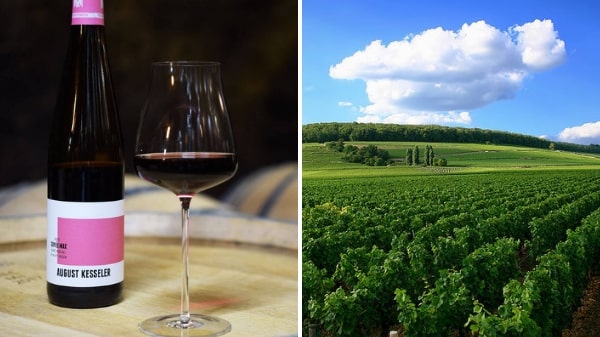
Burgundy and Beyond: Wine tips from Justerini & Brooks’ Managing Director
It wasn’t so very long ago that Bordeaux, that most pre-eminent of French wine regions, claimed to have something of a monopoly when it came to making the world’s finest vintages. And, to be fair, up until seven years ago, its winemakers – particularly those of the Grand Cru persuasion – were permanent fixtures at the top of any list of top tipple producers.

Back in 2011, though, that all changed. Global demand for Bordeaux tanked, and Mouton Rothschild and Chateau Lafite, to name but two, suddenly found themselves jostling for table space with a bunch of upstart Burgundians. Fast forward seven more years, and the supplicant has become the master, with Burgundy now, arguably, dominating the industry – its reputation impeccable and its per-bottle price becoming ever more premium.
Now, though, some see signs that this prized province is also passing its peak. Where, then, should discerning oenophiles turn to for their next fine wine fix? Few are better qualified to conjure an answer to that particular conundrum than Chadwick Delaney, Managing Director of Justerini & Brooks, the most-lauded of longstanding London wine merchants…

What do you see as the defining wine trend in Asia right now?
That would have to be the rise of Burgundy, though that applies to the whole world and not just Asia. Most notably, estates such as Domaine de la Romanée-Conti are commanding astronomical prices, but other lesser-known producers are also doing well. This is largely down to Burgundy’s talented new generation of winemakers who, I think it’s safe to say, are going through something of a renaissance right now. After the Big Bordeaux Bust of 2011, collectors in search of alternative high-quality wines immediately fell under Burgundy’s spell.

Following several years of soaring demand, is there a danger that Burgundy is now on course for its own Big Bust?
That’s very difficult to determine. The Burgundy dynamic right now is very different to that of pre-crash Bordeaux. Back then, it was a change of government policy in China – one of its biggest markets – that saw ostentatious gift-giving suddenly frowned upon, resulting in demand dropping overnight.
Thanks in part to its smaller production capacity, Burgundy has never been reliant on mass demand from China. In fact, if anything was to trigger a collapse in its value proposition, it would more likely be a change in priority on the part of collectors. It’s not inconceivable that they might one day think: “Instead of spending tens of thousands of pounds on a single case of Domaine de la Romanée-Conti, I’d rather find something equally satisfying, but rather more wallet-friendly…”

Are there any other regions that you particularly see as on the way up?
There is a notable spike of interest in the wines coming out of Piedmont in northern Italy. It’s perhaps significant that there’s a number of similarities between the Burgundy and Piedmont estates. In both cases, they tend to be small, family-owned, single varietal vineyards producing very aromatic, expressive wines. In particular, Piedmont’s Barolo and Barbaresco are proving to be performers of note, suggesting to some that the region will evolve along very similar lines to Burgundy.
Looking further afield in Europe, Germany has won a number of admirers over recent years. In fact, it is officially our fastest-growing region. The German whites tend to be particularly dry, a characteristic that makes them eminently restaurant-friendly – a fact not lost on the sommeliers of many fine-dining establishments. Then there’s the pinot noirs, which, while having a unique German identity, in taste terms are also far more reminiscent of Bourgogne than any of their New World counterparts.

Thank you.
Text: Tenzing Thondup







